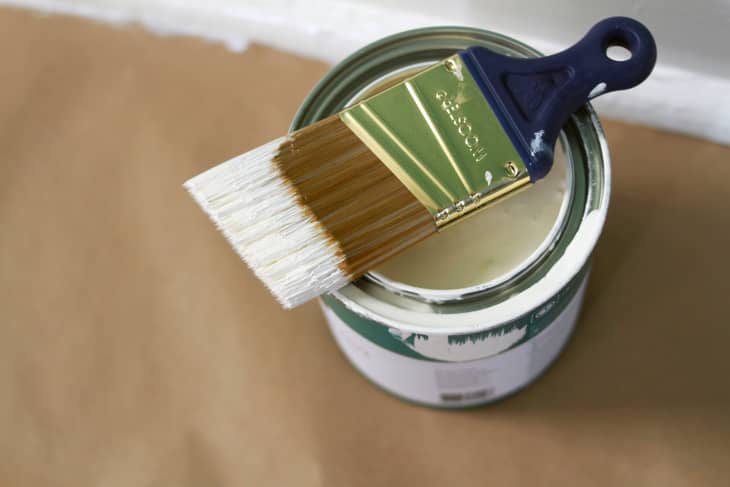this is a page for
Daily Archives: March 5, 2024
By Brigitt Earley

If you’re lucky enough to have a garbage disposal, you know how much easier it makes dinner prep and post-mealtime cleanup. But before you toss everything down the drain and turn on the switch, you should know about a few things that can wreak havoc on the handy appliance.
“While garbage disposals are an everyday convenience for people to quickly and easily dispose of food waste, many homeowners abuse their drains by tossing in several household items that are damaging, like grease and celery stalks, which leads to unwanted buildup in your home’s drain lines,” says Doyle James, president of Mr. Rooter Plumbing, a Neighborly company. These mistakes aren’t just small ones, either—they can potentially affect your home’s entire plumbing system, making repairs extremely costly, says James. Highboy LA House Tour
So you don’t make this mistake, we asked plumbers to share the biggest offenders—and why they’re so harmful.
Bones
Some things are just too hard for the disposal blades to handle, says James. And it should come as no surprise that this includes things like turkey or chicken bones. These items not only dull blades, but can spin and spin without ever getting broken down, eventually getting stuck in your system.
Fruit pits
The same goes for large fruit pits. While a few citrus seeds are no problem, don’t expect your disposal to handle bulkier ones from fruit like plums or peaches.
Eggshells
“There’s a longstanding rumor that egg shells are good for disposals because they sharpen the blades,” says James. “But this rumor is false.” In reality, the membrane layers of egg shells can wrap around the shredder ring, potentially damaging the disposal, not to mention the sand-like consistency of egg shells can cause pipes to clog.
Fibrous foods
James says these types of food are some of the biggest offenders, since they seem innocent enough. But even though fibrous foods—like celery, corn husks, carrots, onion skins, potato peels, asparagus, and artichokes—seem soft, they tend to wrap around the disposal blades, potentially damaging the motor.
Oatmeal, rice and other absorbent foods
Starchy foods like pasta, rice, and even oatmeal can expand in your pipes and contribute to clogs, says Mark Dawson, chief operating officer at Benjamin Franklin Plumbing. They also wreak havoc on the blades of your disposal, since they can develop into a paste that slows down the blades, he explains.
Coffee grounds
While not a problem for the garbage disposal itself, coffee grounds may accumulate inside the pipe and lead to clogging. Toss these in the trash—or better yet, use them to fertilize garden beds.
Make your business an LLC
Structuring your business as an LLC can bring important advantages: It lets you limit your personal liability for business debts and simplify your taxes. With NOLO, you’ll find the key legal forms you need to create a single-member or multi-member LLC in your state, including:
- LLC articles of organization
- operating agreement for member-managed LLC
- operating agreement for manager-managed LLC
- LLC reservation of name letter, and
- minutes of meeting form.
Form Your Own Limited Liability Company has easy-to-understand instructions, including how to create an operating agreement that covers how profits and losses are divided and major business decisions are made. You’ll also learn how to choose a unique LLC name that meets state legal requirements and how to take care of ongoing legal and tax paperwork.
Large amounts of fat, oil, or grease
Never pour frying oil, excess bacon grease, or other fats into the garbage disposal. These can solidify and accumulate, potentially coating blades, clogging your drain, and causing and odors, says Dawson. Instead, use a jar to collect them, then dispose of them in the trash once cool and solidified.
Paint
Paint—both water-based and latex—is not only bad for the environment, but it can also cause buildup over time, says Dawson. While a quick rinse of your paint brush isn’t likely to harm your plumbing system, never pour any paint directly down the drain. Instead, you can dispose of unused paint by letting it harden before tossing it in the trash.
Other non-food items
As a general rule of thumb, never put anything you wouldn’t eat down the drain, says Dawson. This includes twist ties, rubber bands, string, cigarette butts, bottle caps, and plant clippings. These items don’t break down in the disposal, which ultimately leads to clogs farther down in your system, he explains.
Did you enjoy this article?
This is an example of what is included on our FREE weekly newsletter, Landlord Weekly.
Subscribers get access to our free forms, email templates, and guides! As well as…
▪️Landlord Tips ▪️ Early Access to Our Blogs ▪️ Landlord Specific Articles by Other Industry Pro’s ▪️ Podcast Links
To check out a sample of our newsletter, click one of the links below👇
Professional tenants are a landlord’s worst nightmare, the ones you read about in the newspaper. These individuals are notorious for cheating the system and using loopholes, leaving landlords with lost rental income, a damaged property, and a huge headache. They will complain about the smallest of messes and become the largest hassles.
In order to get away with such actions, professional tenants have created some pretty elaborate strategies. Here are the top 5 tactics from professional tenants. If you find your tenant is doing any of the below, then you may have a professional tenant.
Tactic #1: Paying partial rent
Often times, professional tenants will pay only a portion of the rent each month. When a landlord has accepted partial rent one month, then State laws will not allow an eviction for that month. This provides the tenant with more time in the property with overdue rent, and most often, they’ll continue to delay each month. Before the landlord realizes it, the tenant is close to lease expiration with an exorbitant number of past due payments. Don’t accept partial payments and require full amounts on exact dates to avoid these schemes. If a tenant is late, be prepared to start the eviction process right away. Also, never accept partial rent.
Tactic #2: Paying rent before the late fee
Professional tenants understand a landlord is more likely to take legal action for $1,000 of past due rent than for a $50 late fee. These tenants will pay rent before the late fee, claiming the late fee will be paid soon. Guess what? By accepting the rent before the late fee, the landlord is most likely never going to receive the late fee. The landlord becomes emotionally drained as a debt collector and just writes off the late fee.
The lease contract is written to align incentives between the tenant and landlord. A late fee is listed in the contract to set the precedent that rent should not be paid past a certain date. Tenants should not take advantage of the payment terms in the contract. By waiving this fee, a landlord signals that the legally binding contract is “flexible,” and it provides professional tenants with the signal that they may be able to bend other terms in the contract. Don’t become drained emotionally and only accept rent after outstanding late fees are paid.
Tactic #3: Paying in cash
Cash is impossible to track, making it the preferred medium for professional tenant payments. These professional tenants will lie about making cash payments or even go as far as faking rent receipts. As a landlord, avoid taking cash payments that foster these types of actions. When a landlord is in the courtroom, they want to show a track record of traceable payments followed by no payments. Keep in mind that in some states, landlords are not allowed to refuse cash. If a tenant insist on paying cash, you must create and BOTH sign a receipt at the time the cash is accepted.
Tactic #4: Asking for time
Some tenants will approach their landlord and plead for more time to pay rent. This tactic is usually accompanied by a heart-tugging story of the hardships they are currently battling that prevents them from paying. Unfortunately, it is difficult for a landlord to know the legitimacy of these stories and a tough decision must be made. Allowing for a longer payment period will only make things worse. While it might be emotionally difficult to draw a line, a landlord is not a bank that provides loans. When a tenant is late on rent, they should go to their friends, family, bank, or another source for a personal loan. The relationship between tenants and landlords should be strictly professional and real estate related. If a tenant still cannot pay the rent when it is past due, then the next step is an eviction notice. A landlord may want to consider suggesting to the tenant that if they are late on rent, then they will release the tenant from their lease so the tenant can find a more affordable unit. It may be easier for a landlord in the long run to let a tenant who can’t afford rent to leave then to constantly chase the tenant for rent.
Tactic #5: Claiming the rental is uninhabitable
Professional tenants may try to claim the rental is uninhabitable as a scheme to not pay rent. Typically, their process is submitting a maintenance request and claiming it was never addressed. They will withhold rent or break the lease and reference the clause on maintenance and habitability of the property. Every maintenance request should be tracked in a system, providing evidence that the request has been acknowledged and updates have been provided in a timely manner. This type of documentation will save a landlord in the courtroom. While landlords have no power over the judge, maintaining records and photos of your properties can protect yourself from these situations.
When a tenant makes a claim that the property is unfit to live in, landlords must refile with proof of a habitable environment. Tenants will then proceed to trash the property in an attempt to justify their claim. Keeping a running log of property conditions and pictures help prove your case. And, do not forget that tenant damage, beyond normal wear and tear, can be charged back to the tenant. If they are intentionally causing damage to create an “uninhabitable claim,” documentation will help to bring justice in the case.
Looking for the next level of landlord software before handing off to a property manager?
Hemlane is a software that is built to grow with your needs as a landlord.
For a minimal amount, there’s a really good basic package but what we love is the option to upgrade and add 24/7 maintenance management on.
Hemlane offers complete financial support as well. You can link multiple bank accounts for direct deposit rent payments, add automatic late fees, sends reminder notifications to your tenants, and has a detailed profit and loss statement that can includes automatic and manual uploads of income and expenses.
It gets better! If you reach a place where you are ready to hand off management to a property manager, Hemlane has that too under their “Complete” option.
You can try Hemlane out FREE for 14 days (no credit card required) to see if its a good fit for you!
How to spot professional tenants
Professional tenants are just as good at hiding their identity as they are at evading rent, and thus spotting a professional tenant can be difficult. There are some warning signs however that can help you avoid renting to professional tenants. Be on the lookout for tenants with an eviction history, run ins with the law, or troubles with previous landlords. In addition, professional tenants will ask if the property is “professionally managed” during the initial inquiries as a way to find inexperienced landlords.
How to avoid a professional tenant
Screening is a critical aspect for a property management company that helps prevent renting to professional tenants. While there are various third-party methods for screening tenants, screening tenants yourself is the only guarantee. Items such as reference checks can be faked and false information easily provided. Here are a few simple steps to take for screening tenants:
- Have tenants provide a copy of official ID (like driver’s license), if they refuse, they are likely hiding something
- Verify employment history to ensure ability to pay
- Perform comprehensive screening, from credit to eviction history
- Call past landlords and any references listed to assure legitimacy
- Keep a record of your property conditions and tenant interactions
For all reference checking, it’s crucial that you know the sources are legitimate and not fake. Some helpful tips to easily authorize a source:
- If you are contacting an employer, call their main office line listed on a website (not a cell phone). If this is not available, ask them to send you an email from their company email to provide simple proof they still work there.
- If you are calling past landlords, ask questions such as “can you confirm how much the tenant is paying in rent?” It will help confirm that they actually own the property and are not a friend.
- Keep in mind, current landlords may be incentivized to get the tenant to move out (because they can’t pay rent, are causing troubles, etc.) and are thus more likely to persuade you the applicant is a good potential tenant. Prior landlords (from two to three years ago) may be more truthful since they are not currently in a lease with the tenant.
- Don’t forget to reference check ALL adults who will be living in the unit, not just the main contact.
- Even though this process may seem arduous and excessive, remember that a bad tenant can result in 10x more work and therefore it’s worth the upfront work to avoid all of this.
We hope you have found this article helpful to avoid the world’s worst tenants. If you are interested in setting up a more professional appearance to tenants, then try Hemlane for free.
Did you enjoy this article?
This is an example of what is included on our FREE weekly newsletter, Landlord Weekly.
Subscribers get access to our free forms, email templates, and guides! As well as…
▪️Landlord Tips ▪️ Early Access to Our Blogs ▪️ Landlord Specific Articles by Other Industry Pro’s ▪️ Podcast Links
To check out a sample of our newsletter, click one of the links below👇
Did you know that a recent study revealed that the average American loses more money to taxes than they do on food, clothing, and housing combined? That is scary to think about, isn’t it? What’s more scary to know is that most people pay more taxes than they are legally required to by law simply because they don’t know “how” to protect themselves from the IRS.
So how exactly do you know if you are overpaying in taxes? The good news is…there are simple steps you can take to find out. To gauge your risk level of lost tax dollars, we have put together a list of 8 signs to help you measure your risk potential:
1. Record-keeping: Bad sign if you do not have a good bookkeeping system in place.
Ever heard of the saying “What gets measured gets managed”? It is just as important to know how much money you have coming in as it is to know how much is going out. If you are not keeping track of your monthly expenses, you can easily lose out on some legitimate tax deductions! Having accurate and timely financial information not only helps you to manage your finances and grow your wealth…but it is also the foundation for an effective tax savings plan as well.
2. Communication: Bad sign if you do not meet with your tax advisor throughout the year.
For those of us who plan on paying the least amount of taxes possible, proactive planning happens year-round. If April 15th is the first time you are thinking about reducing taxes for last year, you have probably missed out on some big tax saving opportunities. Open the lines of communication with your tax advisor to ensure you are maximizing your tax deductions throughout the year.
Remember: some of the most significant and impactful tax saving opportunities need to be implemented as part of your regular decision-making process for your job, business, and investments.
3. Knowledge: Bad sign if you have to explain your situation to your tax preparer year after year.
Not all tax advisors are created equal. Taxes are a very specialized area and there are specific strategies for specific business industries. For example, there are special tax saving opportunities for people in the real estate business. There are also special tax strategies for doctors, or for those in the manufacturing industry. The strategies that work for those in the services industry may not benefit those who are in the retail industry. Make sure your tax advisor is well versed in the tax saving opportunities in your industry.
4. Compensation: Bad sign if you don’t have a plan on how to tax efficiently take money out of your business or investments.
There are tons of different ways to take profits out of your business and investments and each of them has their pros and cons. For example, if you are a C Corporation, you may save thousands of dollars in taxes by paying yourself a higher salary every year. If you are an S Corporation, the opposite may be true where you can save thousands to tens of thousands of dollars by paying yourself the least amount of salary possible. There are also some great ways for you to extract profits out of your real estate completely “Tax Free”. If you don’t have a plan in place to know “how” to extract your profits tax efficiently, you may be over-paying your taxes.
We use QuickBooks daily in our rental property business!
It’s used to invoice tenants for their rent, track expenses by property and unit number, and our tax advisor can log on anytime to get information he needs for processing taxes or analyzing our data for goal setting meetings!
QuickBooks is the #1 accounting software for small businesses, and today you can take advantage of 30% off your first 6 months of QuickBooks Online using our exclusive Business Affiliate link.
5. Retirement Planning: Bad sign if you are not currently taking advantage of tax deferred and/or tax free opportunities of retirement investing.
Ask yourself: Are you using retirement planning to significantly reduce your taxes currently? In addition to the typical IRA and 401(k), there are so many different types of retirement accounts that are available for us to save taxes today and save for retirement at the same time. If you pay taxes to the IRS and have not used retirement planning techniques in the past, you are probably overpaying your taxes.
6. Fringe Benefits: Bad sign if you have never heard of the term “fringe benefits”.
There are tons of tax free fringe benefits available where your company takes a tax deduction for perks they provide to you as a real estate investor (and it’s not taxable to you). There are over a dozen of these wonderful techniques including company cars, gifts, education expenses, and travel to name a few. If you do not utilize tax free fringe benefits as part of your business planning, you may be overpaying your taxes!
7. Personal and Business Deductions: Bad sign if you do not know what items you can legally shift from your personal bucket into legitimate business deductions.
In this day and age, it has become harder and harder for us to distinguish between personal and business items. How many of us use our personal cell phone for business? How about our cars? iPads? Laptops? All these personal items that you use day in and day out for your investing business may be legitimate tax deductions. If you don’t know how to shift personal items into business deductions, you may be overpaying your taxes!
8. Tax Savings Plan: Bad sign if you do not have a tax savings plan in place to ensure your profits are protected from Uncle Sam.
Incorporating all of the items we discussed above, the question you should be asking yourself is “What is my tax savings plan?” If you don’t know it or if you can’t verbalize it, then you probably don’t have one. Not having an overall plan on “how” you will save taxes is the most common mistake costing taxpayers to overpay taxes year after year.
A good place to start is by contacting your CPA to discuss…
Did you enjoy this article?
This is an example of what is included on our FREE weekly newsletter, Landlord Weekly.
Subscribers get access to our free forms, email templates, and guides! As well as…
▪️Landlord Tips ▪️ Early Access to Our Blogs ▪️ Landlord Specific Articles by Other Industry Pro’s ▪️ Podcast Links
To check out a sample of our newsletter, click one of the links below👇








